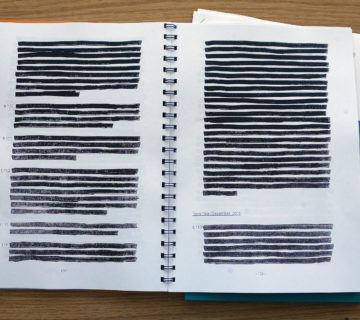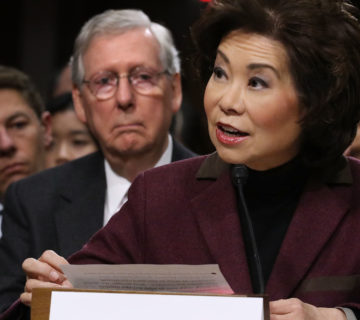WASHINGTON, D.C. – On the anniversary of the Federal Aviation Administration’s late call to ground the Boeing 737 MAX, reporting in Bloomberg details the extent to which the federal agency’s status has plummeted after waiting three days after the tragic crash to ground the planes — making it the last of the world’s aviation regulators to do so.
Just last month, government watchdog Accountable.US filed suit to obtain records of communications between Boeing and the Department of Transportation after the second deadly crash of a 737 MAX in March 2019. In December, the group sent four Freedom of Information Act (FOIA) requests related to these communications, but has yet to receive any records in response.
“Under Secretary Chao, the Federal Aviation Administration’s failure to prioritize Americans’ safety over the interest of industry has shaken America’s reputation worldwide,” said Lizzy Price, director of Restore Public Trust. “This wasn’t about making one bad decision — this was a disastrous decision that has made the world question our government’s judgement. This administration’s continual push to lift up industry interests and disregard the safety of Americans isn’t just harmful to the Americans that have to deal with the immediate impacts, it’s harmful for the next generation who will have to clean up the Trump administration’s mess.”
Bloomberg: Last to Ground the Max a Year Ago, FAA’s Global Status Shaken
- After the second fatal crash of a Boeing Co. 737 Max jetliner, most of the world’s aviation regulators rushed to ground the jet while the U.S., where it was built, waited for data. The U.S. Federal Aviation Administration took three days and ended up being the last to end flights on Boeing’s best-selling jetliner, a year ago Friday.
- “What we’ve got now is a situation where the confidence, the straightforward acceptance of another regulator’s work, has been shaken,” said Dai Whittingham, a fellow at the U.K. Royal Aeronautical Society.
- “It will take the FAA — and Boeing — a while to restore that reputation, which may well change the attitude of other countries towards its leadership role,” said Barry Humphreys, an aviation consultant who formerly was a U.K. economic regulator and airline executive.
- The agency had delegated key assessments of the system on the plane that malfunctioned in the two crashes to Boeing employees, Pilarski said, a process that had been expanded by lawmakers. “It turns out the FAA didn’t do a lot of the work,” he said. “They relied on Boeing. That can’t be recovered in my opinion.”
###



